
Surfacing skills… in a PowerPoint slide
|
Title of case study |
Surfacing skills… in a PowerPoint slide |
|
School/Subject:
|
MSc Global Mental Health; School of Health & Wellbeing |
|
Lecturer(s): |
Dr Dimitar Karadzhov |
|
Course: |
MED5272 Research Methods (Qualitative, Quantitative and Health Economics) |
|
Student Level: |
PGT |
|
Class size: |
40-50 |
|
Location: |
On campus |
Brief summary
Educators have historically faced challenges to teaching research methods as they tend to be perceived by students as rather complex and abstract, overly technical and simply unengaging. As a result, students have reported difficulties in research methods courses (Earley, 2014; https://doi.org/10.1080/13562517.2013.860105 ).
To tackle this, the introductory lecture of a demanding research methods course, the lecturer displayed a series of slides that demonstrated how research skills encompass a rich variety of future skills beyond simply data collection and analysis techniques.
Objectives
To increase students’ appreciation of the wide use and professional value of research skills (and the future skills that these encompass)
To increase students’ motivation to take part and engage with the course.
What is done?
In a series of slides (see below), the lecturer provided a detailed list of both disciplinary and future research skills.
As the images below show, research skills, in fact, encompass such universally valuable future skills and competencies as leadership, persuasion, fund-raising, administration, stakeholder engagement, teamwork and communicating complex ideas effectively.
Slide 1.
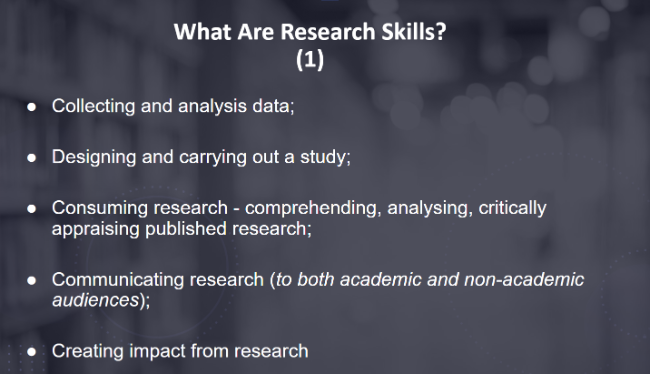
Slide 2.
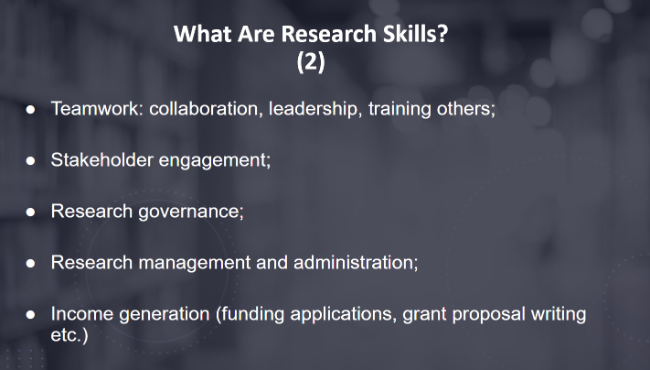
In addition, the lecturer cited recent job advert excerpts to demonstrate the employability value of research methods (please see below).
Slide 3.
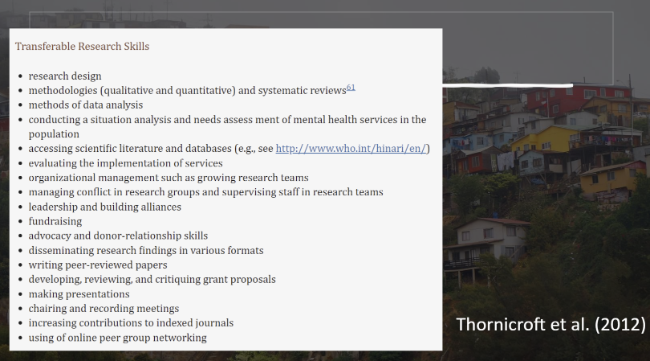
Slide 4.
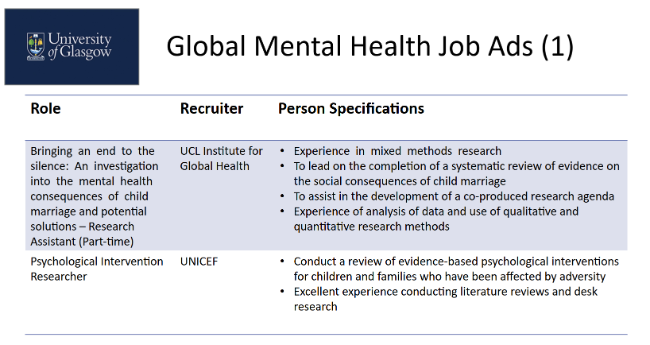
Slide 5.
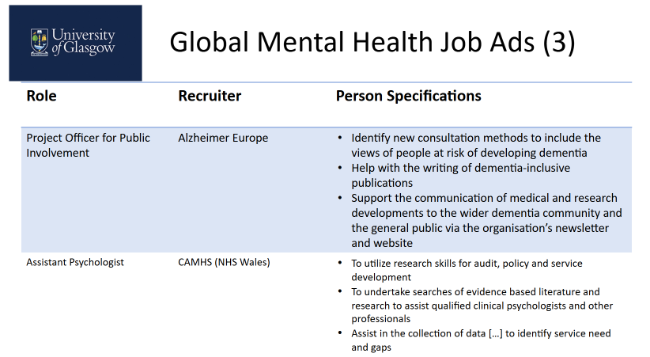
Finally, in a separate, career-focused session, the lecturer demonstrated to the students how to reference the skills (both research and future) gained in the programme on their CVs (please see below).
Slide 6.
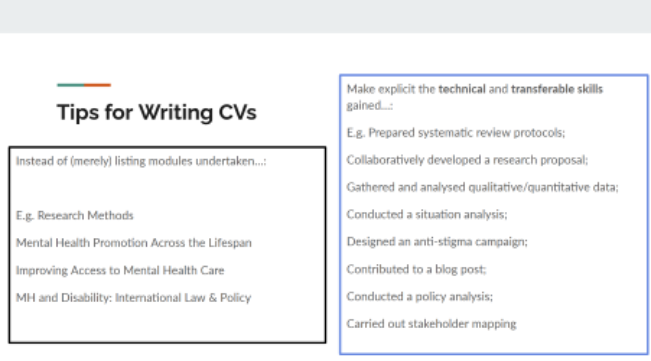
References:
Earley, M. A. (2014). A synthesis of the literature on research methods education. Teaching in Higher Education, 19(3), 242-253.
Thornicroft, G., Cooper, S., Bortel, T. V., Kakuma, R., & Lund, C. (2012). Capacity building in global mental health research. Harvard review of psychiatry, 20(1), 13-24.
What works well?
It is a straightforward intervention that clearly conveys the skills (both disciplinary and future) that students will develop from a course.
Benefits (students & staff)
For staff and students alike, this approach leads to a greater appreciation of the professional dimension of disciplinary skills.
Challenges (students & staff)
No significant challenges encountered although the extraction of a rich set of future skills does require some preparation time as well as identifying relevant job advertisements.
What did you learn?
No direct student feedback was obtained of this surfacing approach.
During preparation, the lecturer did increase their own appreciation of the wide set of future skills found within research methods.
What advice would you give to others?
Routinely surface the future or transferable dimensions of disciplinary skills and knowledge. This could be done in a variety of ways, for example, by referencing job descriptions that mention specific skills targeted in the course.

